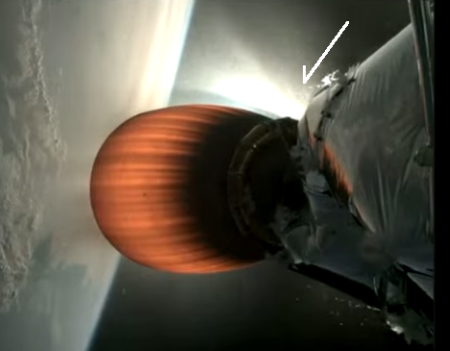SpaceX launches another 23 Starlink satellites
SpaceX tonight completed its second launch in two nights since resuming launches after a two-week halt after the July 11th upper stage launch failure, its Falcon 9 rocket lifting off from Cape Canaveral and placing another 23 Starlink satellites in orbit.
The first stage completed its fourteenth launch, landing on a drone ship in the Atlantic.
The leaders in the 2024 launch race:
73 SpaceX
31 China
8 Rocket Lab
8 Russia
American private enterprise now leads the rest of the world combined in successful launches 85 to 47, while SpaceX by itself leads the entire world combined, including American companies, 73 to 59.
SpaceX has another launch scheduled for tomorrow night.
SpaceX tonight completed its second launch in two nights since resuming launches after a two-week halt after the July 11th upper stage launch failure, its Falcon 9 rocket lifting off from Cape Canaveral and placing another 23 Starlink satellites in orbit.
The first stage completed its fourteenth launch, landing on a drone ship in the Atlantic.
The leaders in the 2024 launch race:
73 SpaceX
31 China
8 Rocket Lab
8 Russia
American private enterprise now leads the rest of the world combined in successful launches 85 to 47, while SpaceX by itself leads the entire world combined, including American companies, 73 to 59.
SpaceX has another launch scheduled for tomorrow night.


